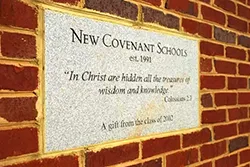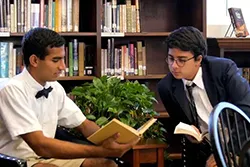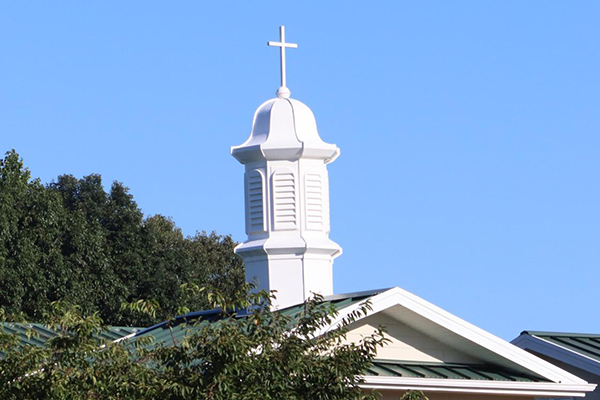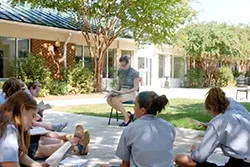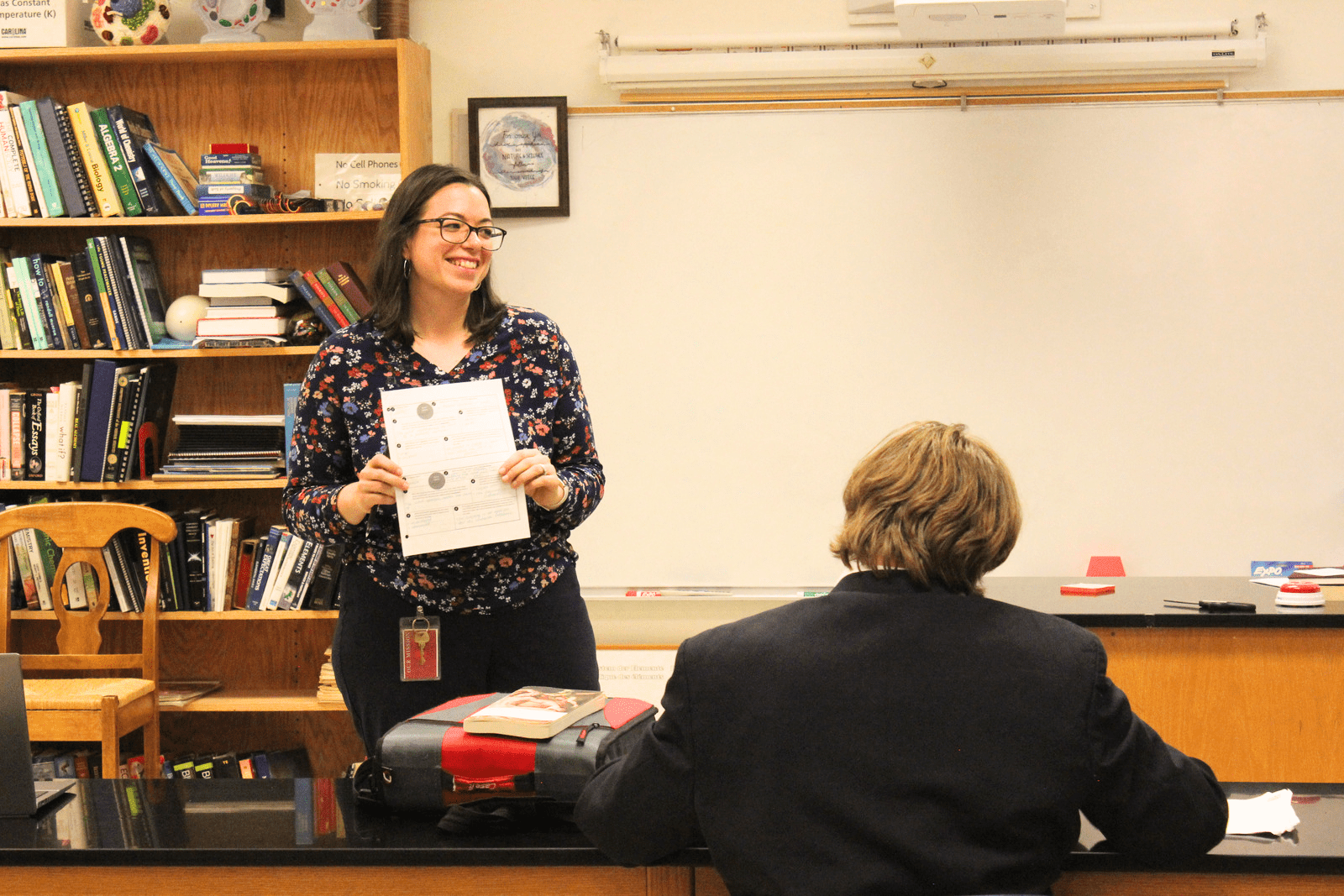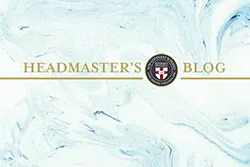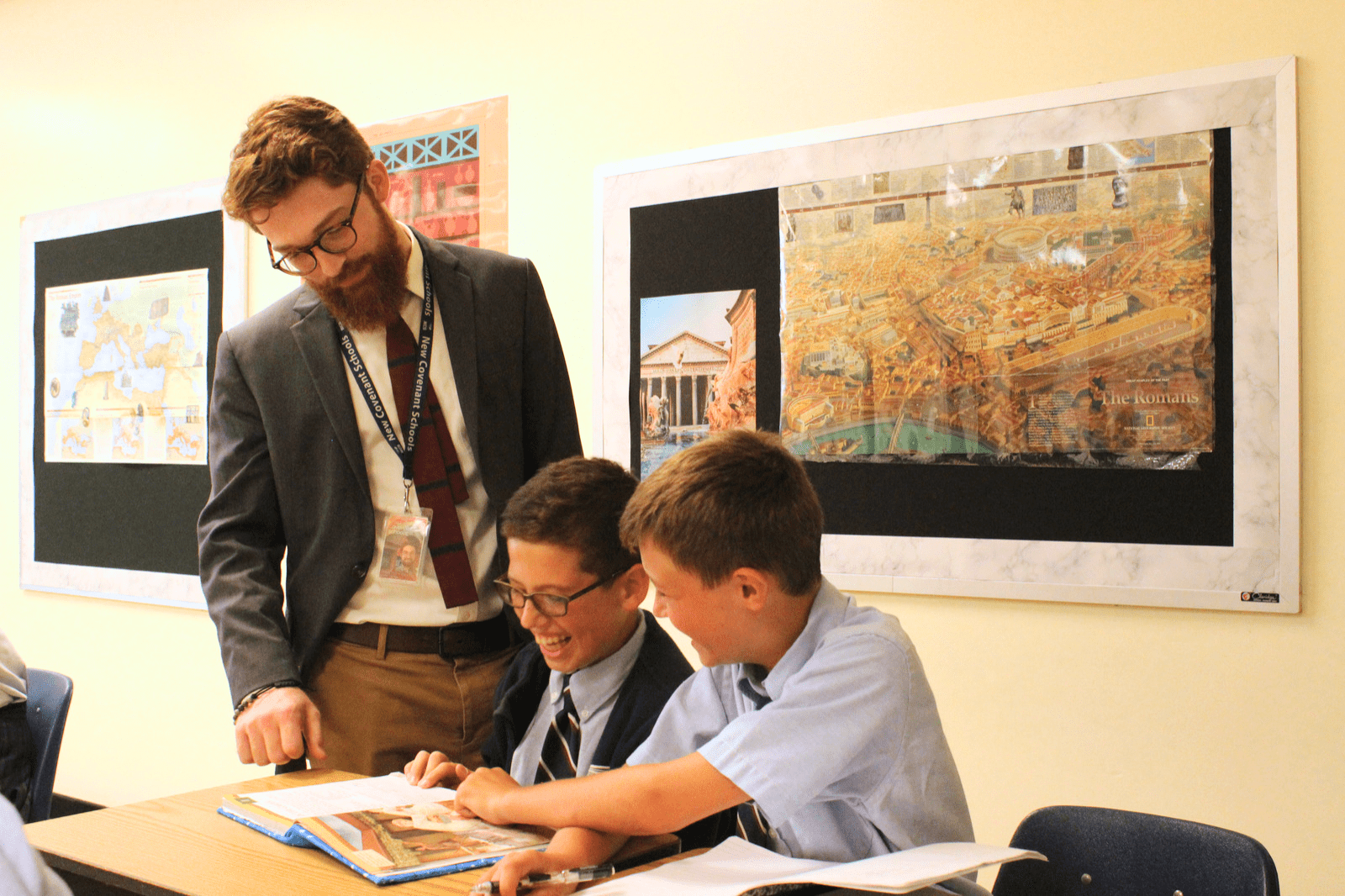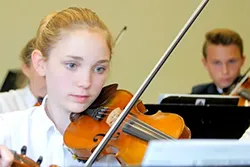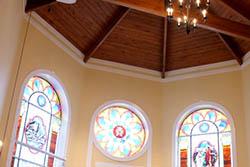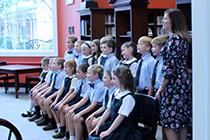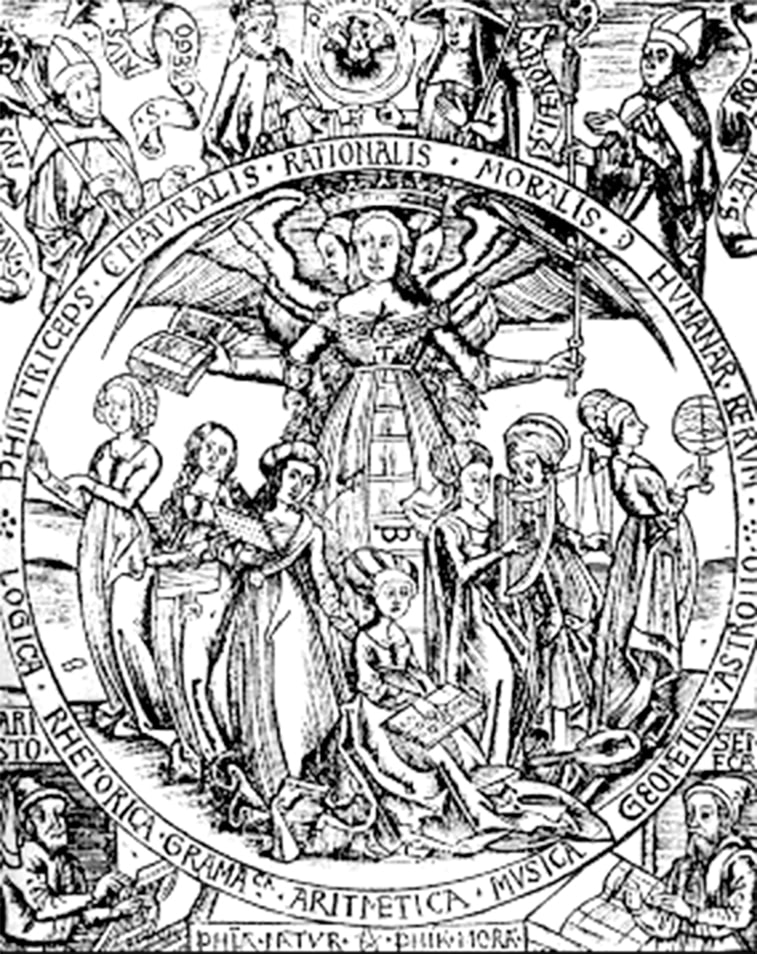In the picture above, the seven liberal arts, pictured as maidens, are each shown holding an object that identifies them. By the fourth century of the Christian era, the liberal arts had been developed as branches of knowledge, and were understood as a way of organizing human knowledge into discrete fields. The trivium consisted of grammar, dialect (logic), and rhetoric, while the quadrivium consisted of music, mathematics, geometry and astronomy. These are indicated in the text around the bottom of the sphere. All of these were governed by the “queen,” theology, the large figure in the middle, who represented the system of faith and presuppositions that were necessary for the flourishing of human learning. Outside around the sphere are pictured a group of bishops, which suggests that the whole educational endeavor takes place in the context of the Church. In other words, early Christian thinkers understood that true education – the investigation of God’s world – could only be done properly when the created order itself, the world, is accepted by learners for what its Creator reveals it to be. The fundamental posture of students is therefore one of gratitude, as those who are receivers of the gift of creation. In this model, reality has a “givenness” about it, and for our part, we conform ourselves to the world as it is, as God made it.
This stands in stark contrast to modern education, the foundations of which are rooted in the Enlightenment. In this intellectual tradition, faith and reason were separated, creating a never-before-seen space, which was called “secular.” In this space, knowledge was pursued by human reason only, consciously separated from the guidance of theology. In this model, theology is ignored or held with deep suspicion, barely occupying the place of a scullery maid. Consequently, secular education is largely unconcerned with the investigation of the world as reality, but fully committed to the students’ ability to interpret the world as they will, making their own reality as they see fit. The cultivation of piety, morals or manners is then reduced to the sovereign realm of the individual and must be accorded unquestioning acceptance and celebration.


